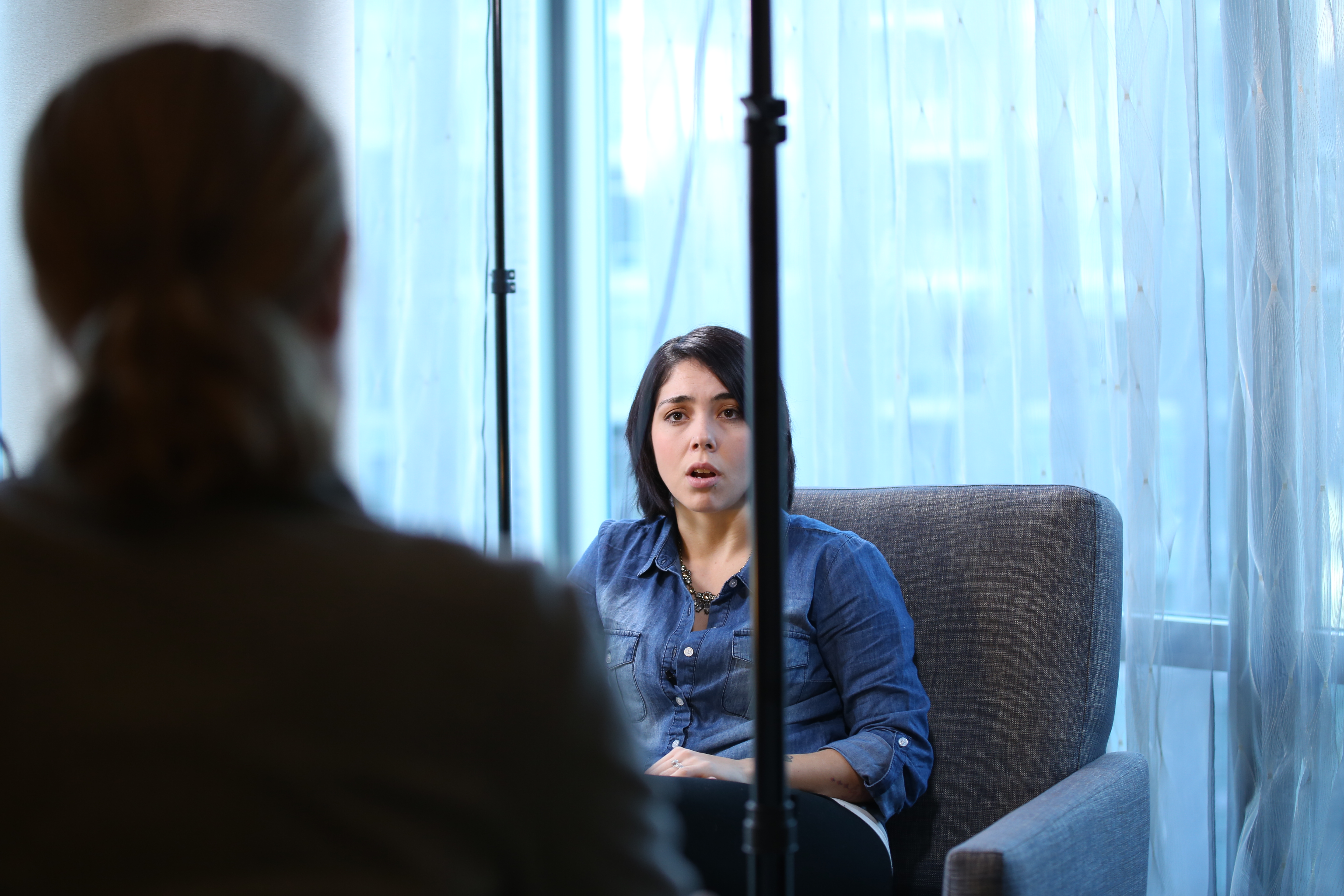This is a guest post written by Ann Zamudio. Her film Don’t Talk About the Baby is currently crowdfunding via Seed & Spark.
[Trigger warning: discussion of infertility, miscarriage, and infant loss.]
When making a documentary about miscarriage, stillbirth and infertility, it can be easy to get lost in the stories. After all, the goal of Don’t Talk About the Baby is social change, accomplished by empowering couples to start telling their stories in their communities.
The stories are raw and powerful and they’re leading a movement of change which cries out that loss and infertility are nothing to be ashamed of. They’re compelling voices, and they’re easy to get caught up in. As the director, my job is to make sure that doesn’t happen. It sounds counter-intuitive, since we’re asking people to tell their stories, but when it comes to the actual film, I always keep a balance at the forefront of my mind: the balance between the heartbreaking stories, and the fascinating expert interviews that explain the emotions behind them.
Pregnancy loss and infertility are plagued by silence and stigma. It’s my passionate belief that the only way out of the shadows is to thoroughly explore how and why we got there in the first place. It’s harder for a woman to feel like a failure when she knows, scientifically and without a doubt, that she didn’t cause her miscarriage. It’s less likely for a mother to mourn in silence when she knows the words to use to ask for understanding. It’s less likely that a community will forget a family’s loss, when a film tells them the power of remembering and saying that baby’s name.
My vision for this film is to examine every thread of shame that permeates pregnancy loss and infertility and reconnect it to support, openness and understanding.
The experts are key to this documentary, and I chose them by investigating my own experiences after my early miscarriage. What did I do? The woman most likely to watch this film is a woman fresh from a loss, and it’s important to me that the themes we explore are relevant to the journey she’s starting.
I felt silenced when I tried to talk about it. I felt pressured to move on. I felt disconnected from my husband. I went online and sought support from strangers. I found power in sharing my story with them.
So we found an expert scholar who spoke about the value in letting a woman tell her story. She talked about losing trust in your own body, and learning to navigate in a world that places a woman’s worth in motherhood. We found a professor who studied how women share their stories online, and how that’s changed over the last ten years. The revolution we’re in the midst of, with parents dedicated to sharing their stories, is largely due to the rise of social media. I wanted someone to explain the support networks we build online, and how that translates to our real lives. We also have therapists talking about how men and women grieve differently, and giving advice on bridging the gap that grows after a loss. They give the audience tools for starting conversations, overcoming emotional roadblocks, and learning to deal with the shitty hand they’ve been dealt.
Then we follow the real world experiences of couples during and after miscarriage, infertility and stillbirth. We hear their cries and see their tears. They let us into their lives in the most humbling way. And so we strike a balance. When filming these interviews, I always keep in mind the overall goals of this documentary — empowerment, support, and communication. Every interview is geared towards answering one question: How do we learn to heal?
Free from shame, from stigma and oppressive silence. That’s the goal of this documentary, and what I remember at each step in making this film.
The process of making this film has been eye opening and rewarding. Please consider joining our efforts to shatter the stigma, and pledging your support to our Seed & Spark campaign to finish the film.
Ann Zamudio is a mother, filmmaker and writer based in the Washington, DC area. She’s currently directing Don’t Talk About the Baby, a documentary aiming to shatter the stigma surrounding pregnancy loss and infertility. Her writing has appeared in Scary Mommy, PALS, and The Huffington Post. Follow the documentary on Facebook and Twitter.

